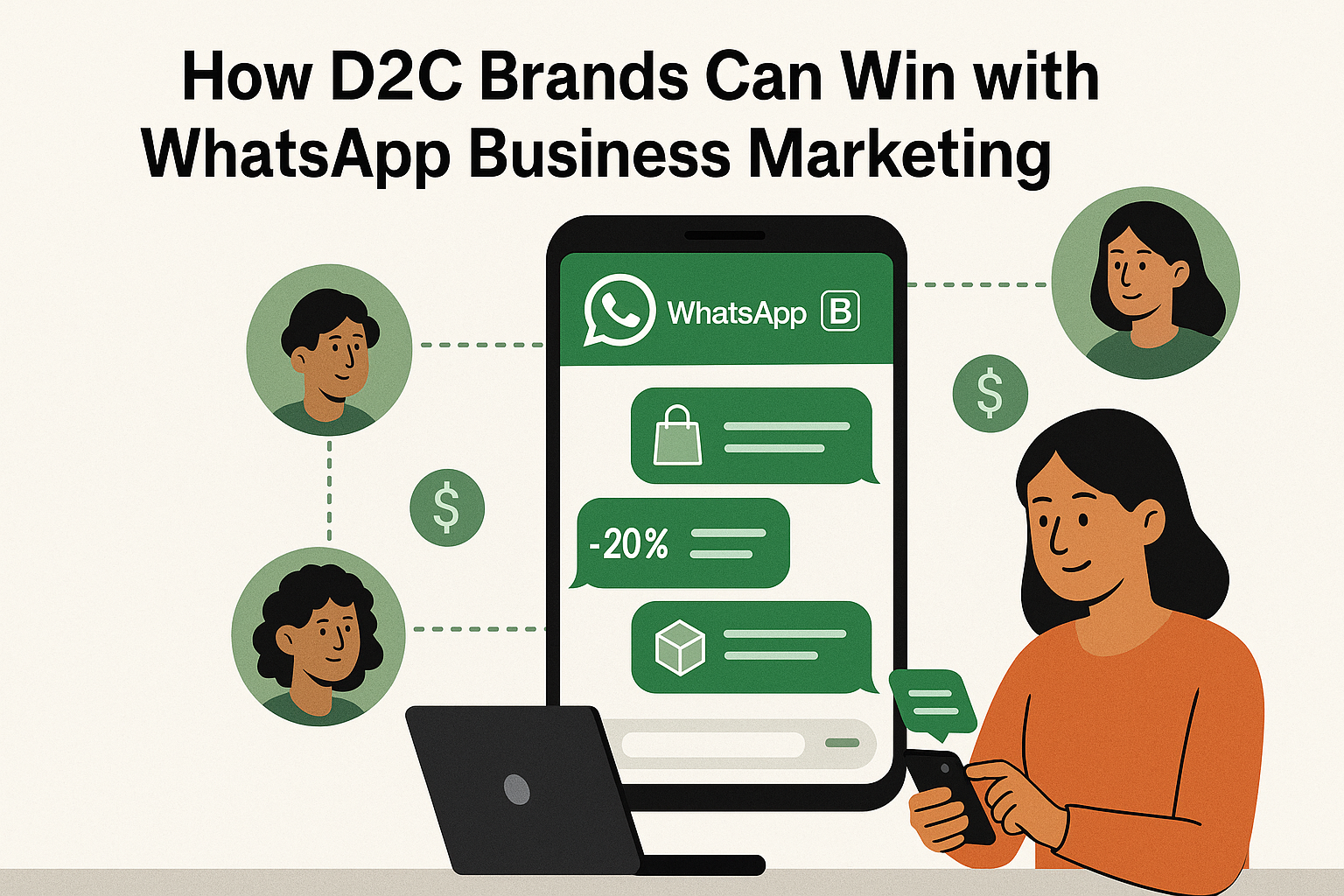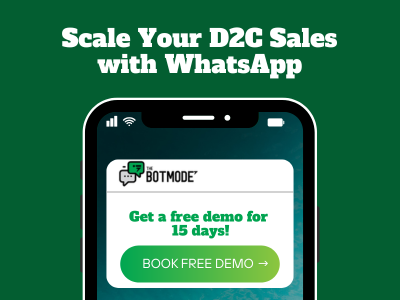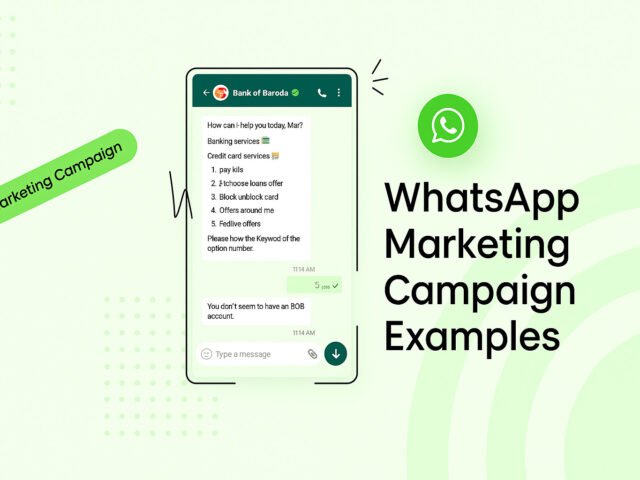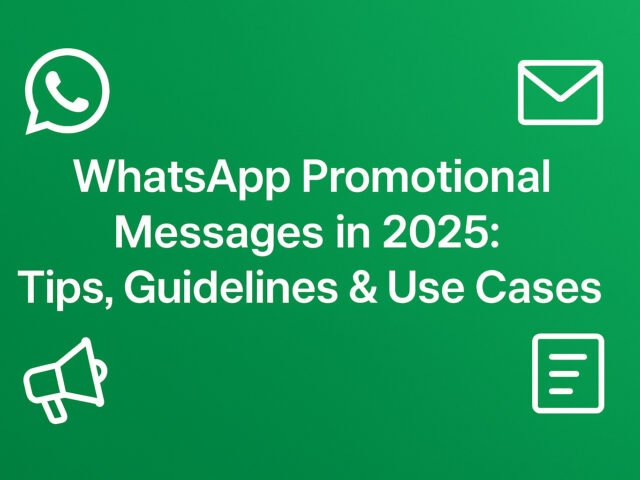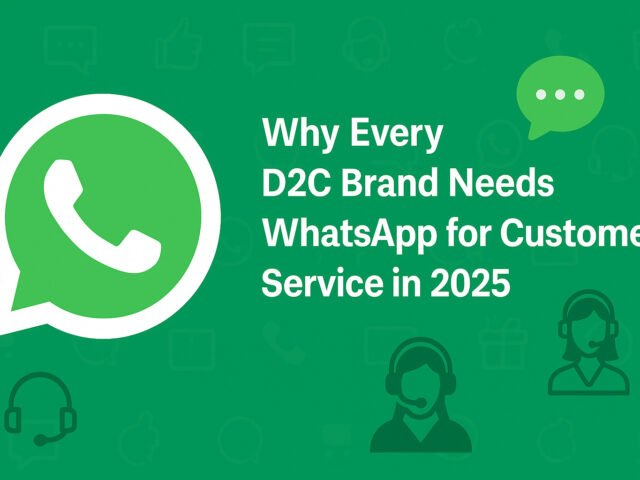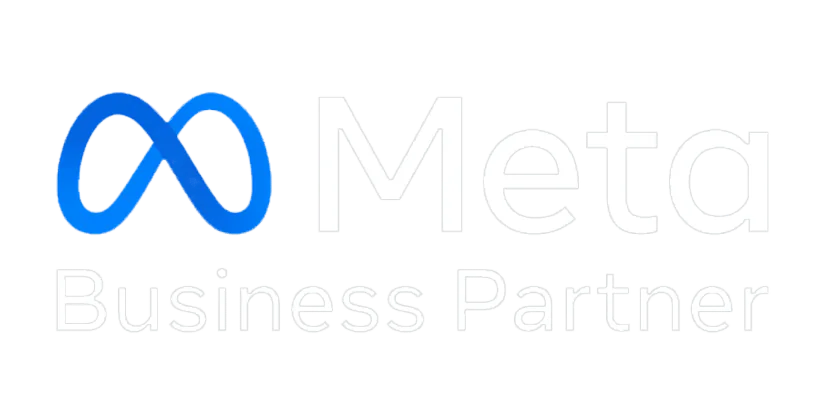Introduction
Did you know WhatsApp messages enjoy an open rate of nearly 98%, far surpassing email and SMS? For Direct-to-Consumer (D2C) brands, this makes WhatsApp an untapped goldmine for building stronger customer relationships, driving engagement, and boosting sales.
In today’s world where acquisition costs are soaring and customer attention spans are shrinking, WhatsApp Business offers a direct, personal, and conversational channel that meets consumers where they already are—on their phones.
This blog will explore how D2C brands can harness WhatsApp Business for marketing success, diving into strategies, tools, best practices, KPIs, and real-world case studies.
1. What is WhatsApp Business & WhatsApp Message Marketing?
WhatsApp Business is an application (and API) designed to help businesses connect with their audience through one-on-one messaging, automation, and customer support tools.
WhatsApp Message Marketing refers to using the platform to send personalized promotions, reminders, updates, and re-engagement messages. Unlike email or SMS, WhatsApp feels personal and conversational, making it especially powerful for D2C brands that thrive on direct customer connections.
2. Why WhatsApp Outperforms Email & SMS for D2C Brands
- Higher engagement: WhatsApp boasts ~98% open rates compared to ~20% for email.
- Faster response: Average response time on WhatsApp is minutes, not hours.
- Mobile-first advantage: Particularly strong in India, Southeast Asia, Latin America, and other mobile-first markets.
- Personalized experience: Unlike mass emails, WhatsApp feels more like a trusted conversation.
For D2C brands that rely on repeat purchases and community building, these factors give WhatsApp a competitive edge.
3. Winning WhatsApp Business Strategies for D2C Brands
3.1 Segmented Campaigns & Promotions
Send tailored messages to customer segments—new customers, loyal buyers, or inactive users.
Example: “Hi [Name], your favorite skincare line is back in stock. Shop now!”
3.2 Cart Abandonment Recovery
Use reminders to bring shoppers back.
Example: “Oops! You left something behind. Complete your order now and enjoy free shipping.”
3.3 Click-to-WhatsApp Ads
Run Instagram/Facebook ads that drive users directly into WhatsApp chats. This shortens the funnel and boosts conversions.
3.4 Order Updates & Customer Support
Automate transactional messages like confirmations, dispatch, and tracking. Customers appreciate real-time updates.
3.5 Exclusive Offers & Loyalty Rewards
Reward WhatsApp subscribers with special discounts or VIP access to launches.
3.6 Collect Reviews & User-Generated Content
Request feedback post-purchase and encourage customers to share pictures or reviews.
3.7 Re-engagement Campaigns
Re-target inactive users with product suggestions or discounts after 30/60/90 days of inactivity.
4. Measuring Success: Key WhatsApp KPIs
- Open rate & read receipts
- Click-through rate (CTR)
- Conversion rate (sales from WhatsApp messages)
- Customer retention & repeat purchases
- Engagement (reply rates, conversations initiated)
- ROI (campaign revenue vs. cost)
5. Case Studies: WhatsApp in Action for D2C Brands
- Fashion & Apparel: A D2C clothing brand increased conversions by 37% using Click-to-WhatsApp ads.
- Beauty & Skincare: Brands using WhatsApp reminders for cart recovery saw abandoned cart rates drop by 25–30%.
- Food & Beverage: D2C meal kit brands use WhatsApp for real-time delivery tracking and upsell additional items.
These examples prove WhatsApp can transform marketing outcomes for consumer-driven businesses.
Conclusion
WhatsApp Business is no longer optional—it’s a must-have for D2C brands that want to connect with customers directly, personally, and effectively. From promotions and cart recovery to loyalty programs and feedback collection, WhatsApp enables brands to drive engagement, sales, and long-term loyalty.
👉 Ready to scale your brand with WhatsApp Business? Start with TheBotMode’s WhatsApp marketing solutions today: Visit TheBotMode.
FAQs
Q1. Is WhatsApp Business marketing legal?
Yes, but you must obtain customer opt-in before sending promotional messages.
Q2. How often should D2C brands send WhatsApp messages?
2–4 times per month is safe. Focus on quality and value over frequency.
Q3. Can WhatsApp be used for international marketing?
Yes. As long as your customers opt in, WhatsApp works globally.
Q4. What is the cost of WhatsApp Business API?
Pricing varies by provider and country, usually per message.

